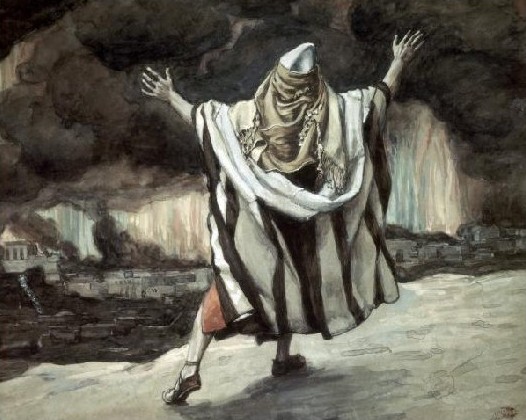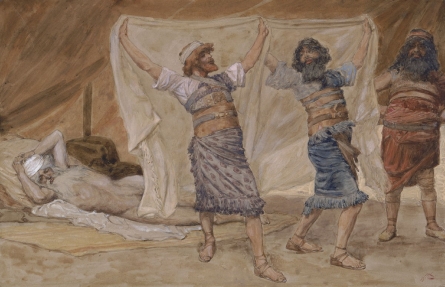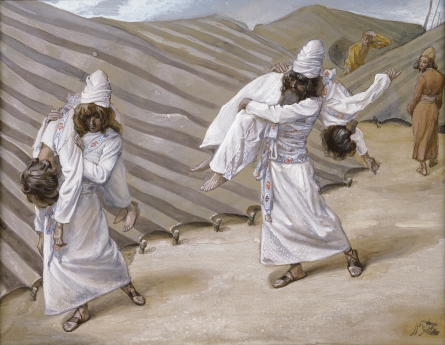Is the Conversion
Process Abusive? Part I
Rabbi Freundel, the RCA, and GPS
I am no therapist, nor do I serve on any court that performs
conversions. Someone with both qualifications would be better suited to this
task. But perhaps a few ‘inexpert’ observations, ‘circling the target’ as it
were, will lead to expert ones that ‘hit the mark.'
I know a lot of converts. Also, being happily married to a
convert, I am quite partial to the view that conversion is good for the Jews. However if there is one thing that I am also certain of, it is that Jews have not been
good to converts. I know this because converts tell me so. Stories of lengthy
and indefinite wait times, overbearing rabbis or excessively demanding rabbinic
courts, unwelcoming communities, the challenge of finding a shidduch after conversion, and the
constant anxiety that one’s conversion will be questioned or rejected…have caused
a great many tears to flow. Rarely do
converts’ experiences of harassment, abuse, or discrimination come to public
light. But there has been quite an exception recently.
Since late October 2014, allegations of ‘mikvah voyeurism’
by Rabbi Barry Freundel have garnered a great deal of media attention. If even
half the stories are true of hidden video cameras and ‘practice mikvah dunks,’
the matter is truly shocking. However, in the aftermath of Freundel’s arrest by
D.C. police, a host of additional accusations surfaced among Freundel’s female converts that they were conscripted into secretarial duties, as well as contentions that Freundel conducted less than appropriate financial dealings with his converts.
Most strange was the piece of news that in 2012 some women
reported Rabbi Freundel to the Rabbinical Council of America. They brought
forward their contentions about being compelled to perform clerical work and
claimed that R. Freundel was soliciting them for suspiciously large donations
to his conversion court. The RCA investigated Freundel, confronted him, and
apparently settled the matter satisfactorily, at least in their own minds.
What is so remarkable about this event is the fact that R.
Freundel served on the executive committee of the RCA at the time and
continued to do so afterward. (He was only suspended recently.) And while I am
aware of no evidence that the RCA acted dishonorably, if it is assumed that the
investigation was conducted by close colleagues and friends, one does wonder at the impartiality of the
process. Can one rabbinic court truly be trusted with overseeing the workings
of another (friendly) rabbinic court? What if it is really just the same court or system
of courts?
One must consider Rabbi Freundel’s central role on the RCA’s
conversion committee. In 2007, the RCA set about to completely standardize
and restructure on a national level its policies and procedures for conversion.
The system, still in place, was titled “Gerus Policies and Standards,” or “GPS.”
The Chairman of the GPS committee and its presumptive chief architect was none
other than Rabbi Barry Freundel himself. In his role, Rabbi Freundel defended GPS
against criticism from rabbis such as Marc Angel and Avraham Weiss. It behooves
us to ask how diligently the RCA’s executive committee or conversion committee
investigated its own chairman of GPS?
One of GPS’s stated aims is “avoiding
unnecessary confusion and anguish” but what is there to say or do when one
of its key draftsman is found, then and now, to be a central cause for
“confusion and anguish” among converts?
And here I would like to suggest a much bigger question. Perhaps
there is something awry about the entire conversion process. Perhaps the ordeal
of the conversion lends itself to exploitation and abuse. Most rabbis are
decent and honest, and many, may they be blessed, are a lot better than decent
and honest, so it is easy therefore to dismiss the small minority who twist the
upright path. But the pursuit of sin can only occur when there is ample
opportunity.
I wonder if the creation of GPS implemented a system conducive to exploitation
by the devious or deviant? And here is the thrust of my contention, perhaps Rabbi
Freundel should be held responsible, along with those who assisted him, for
crafting a system that puts converts in just the sort of nebulous position
where they can easily be manipulated, preyed upon, and abused.
To be continued in a day or two….



